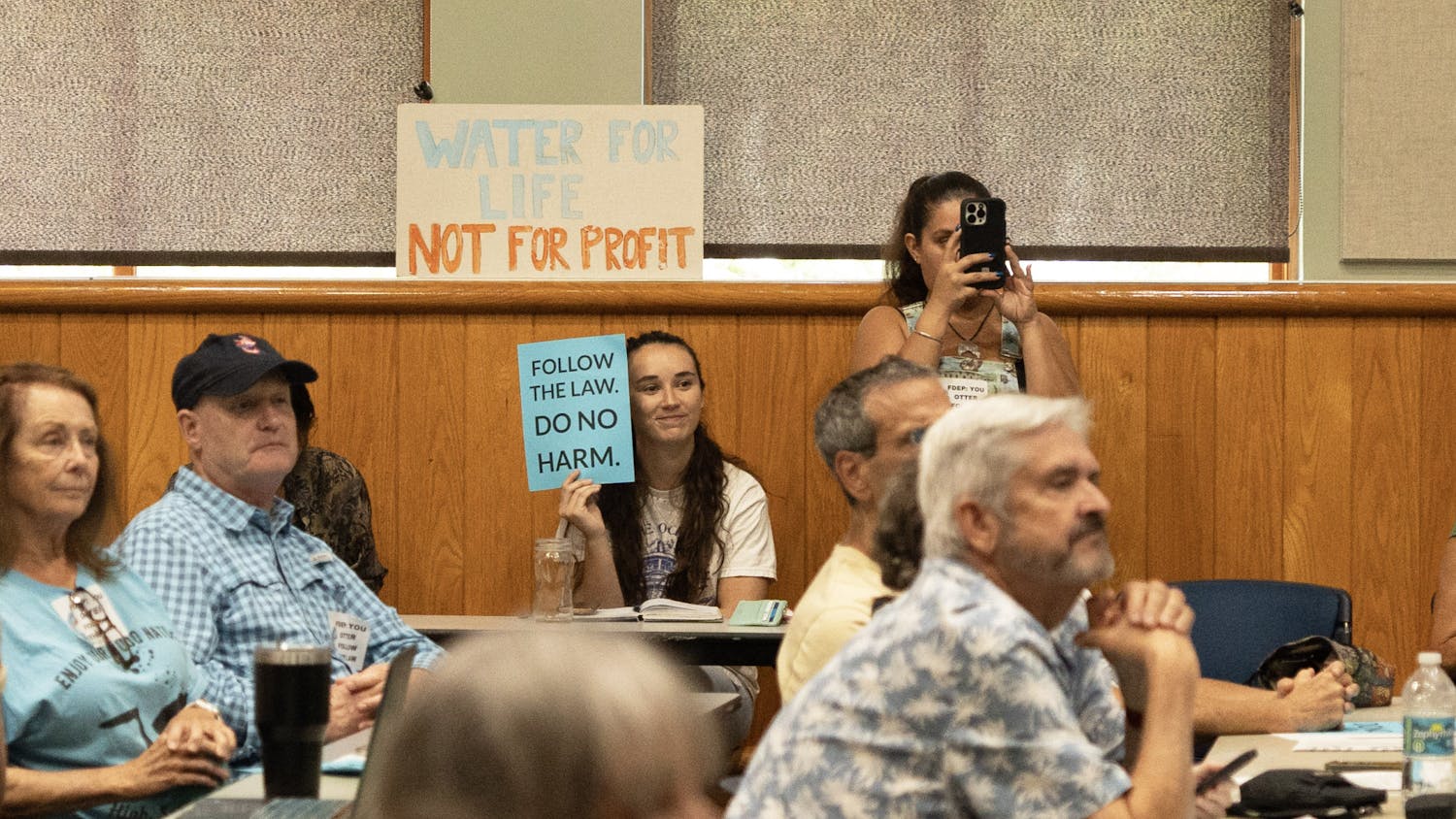Pharmaceuticals and personal hygiene items are contributing to water pollution, a UF researcher found.
Alexander Reisinger, an assistant professor in UF’s soil and water sciences department, co-authored a paper with five researchers from different universities. The November study examined how pharmaceuticals and other items impact the environment by disrupting the ecosystem and creating an imbalance.
Pharmaceuticals and personal care products, or PPCPs, pollute natural waterways and bodies of water because they can’t be easily removed from the environment, he said. Reisinger said he hopes to change how people classify contaminants and pollution in the environment.
“We’ve come up with this overarching framework of how we should think about contaminants in the environment,” he said.
Wastewater treatment plants, which are built to remove solids and contaminants from water before it’s released back into the environment, aren’t designed to process chemicals found in pharmaceuticals and similar products, Reisinger said.
Reisinger and his colleagues began the study when they noticed similarities between personal care items and endocrine disruptors, chemicals that interfere with the health of wildlife and humans.
The presence of pharmaceutical pollution in the environment is changing organisms’ behavior in the ecosystem in the same way endocrine disruptors do, Reisinger said.
“We have a decent idea of what chemicals are out there but we don’t know much about the mixture of these chemicals,” Reisinger said.
Local and state parks are taking preventive measures when it comes to pollution, like Devil’s Den Spring, a privately owned spring located in Williston, Florida.
Megan Bryant, the public relations representative for Devil’s Den, said they work to keep the spring clean from all pollution, not just pharmaceuticals and similar items.
“We have staff around that makes sure no one goes down the steps with anything except their mask, snorkel and fins,” Bryant said.
Reisinger said people can reduce pollution from personal items by not flushing pharmaceuticals down the drain, and considering what’s in prescriptions.
“You may be taking more chemicals than you need, and that’s not really good for you or your body, and that’s not good for the environment,” he said.





